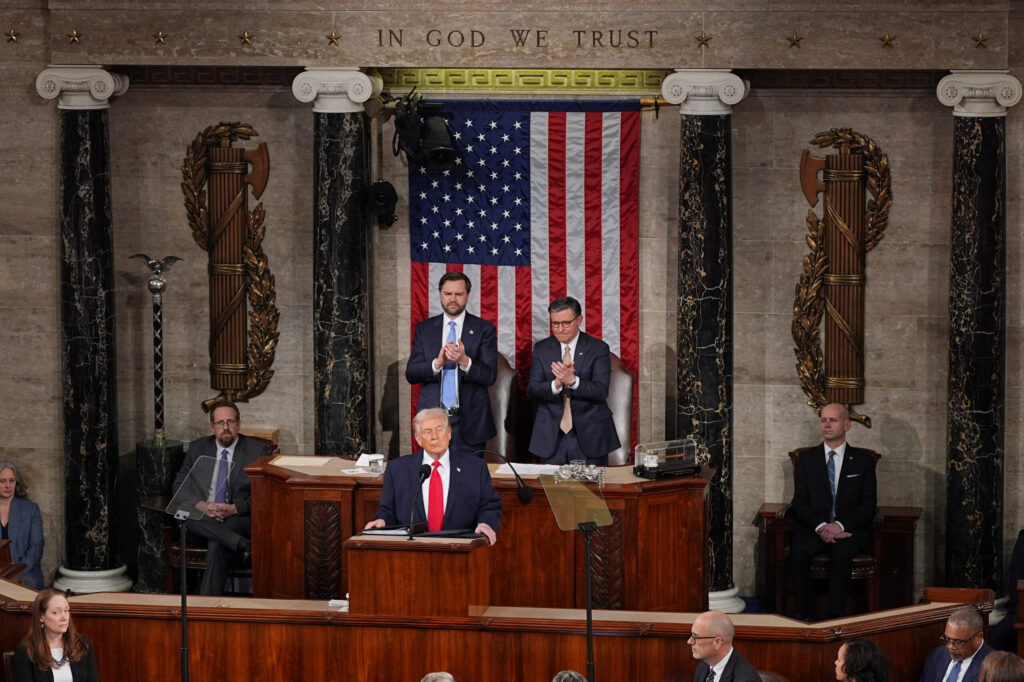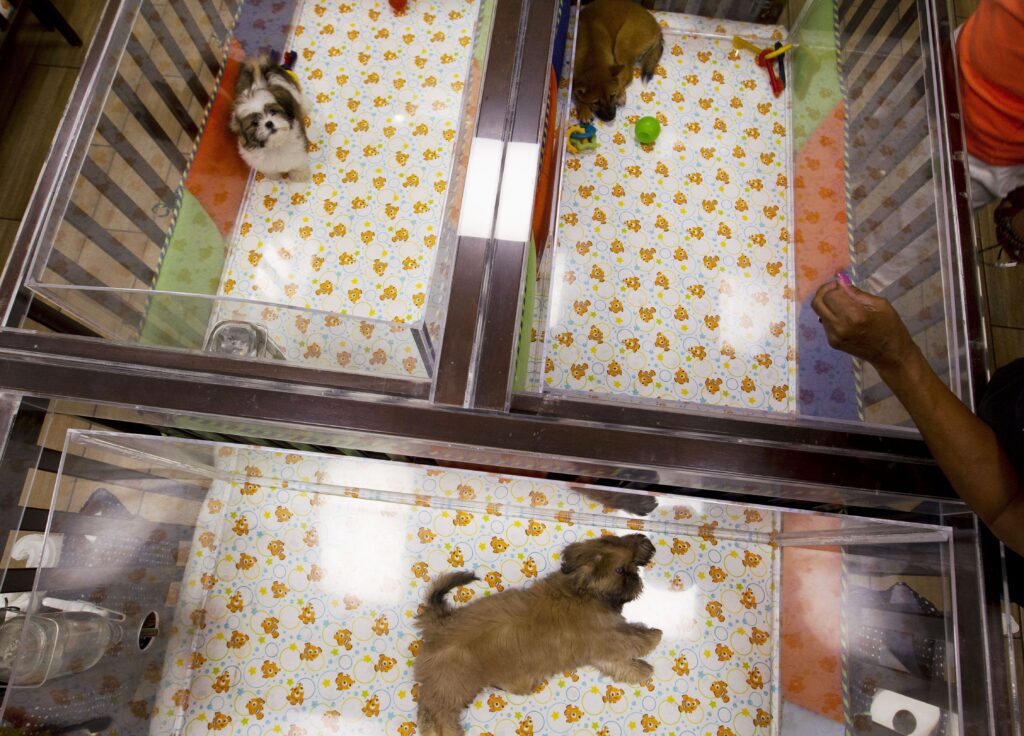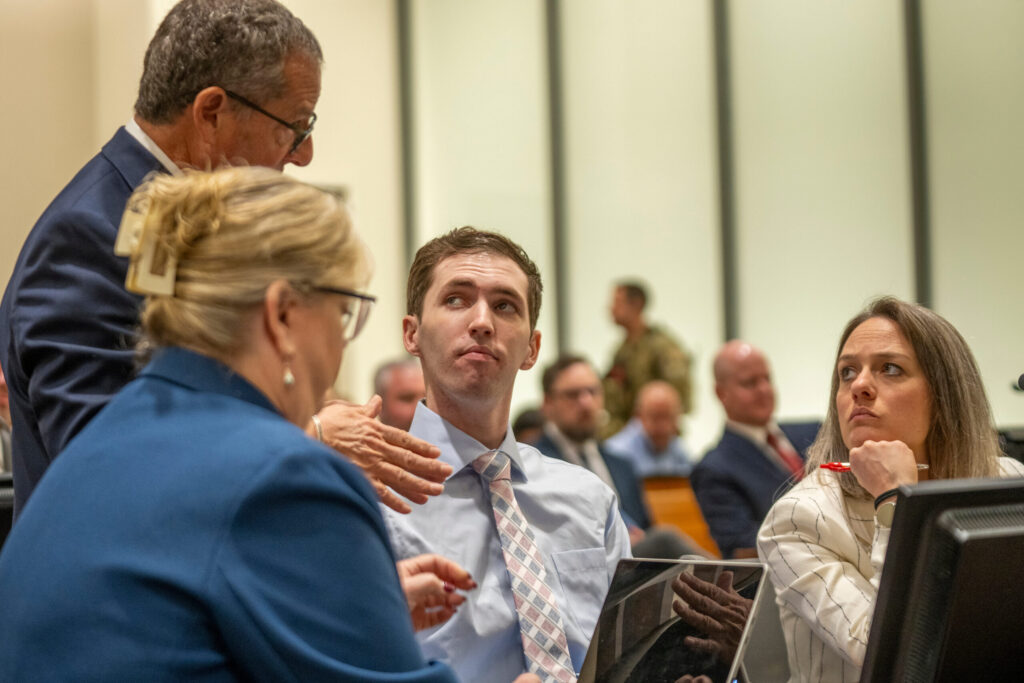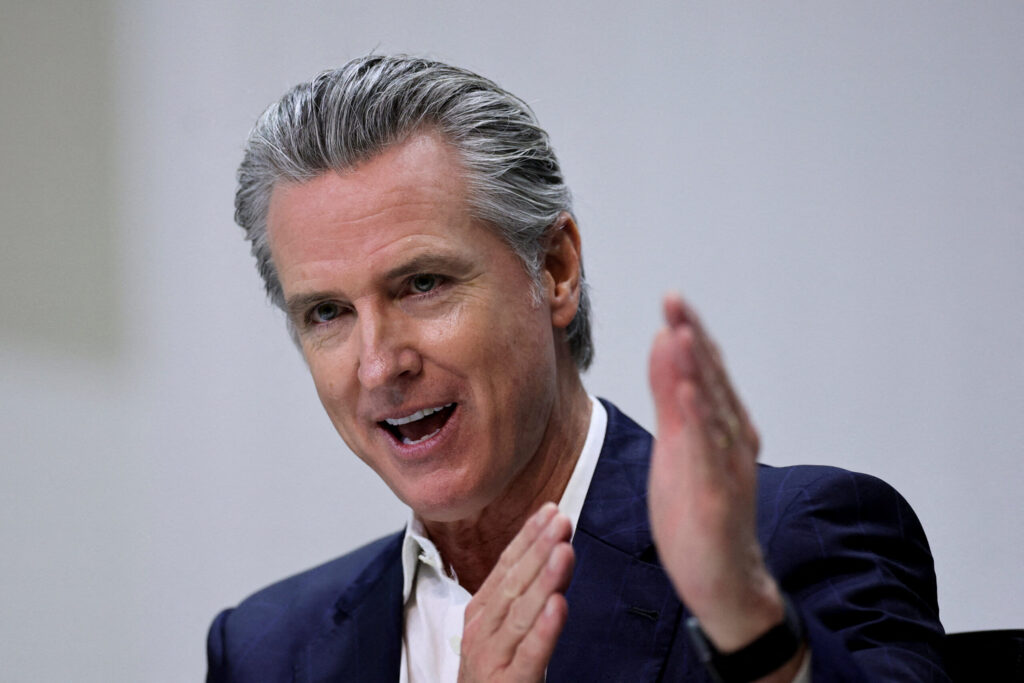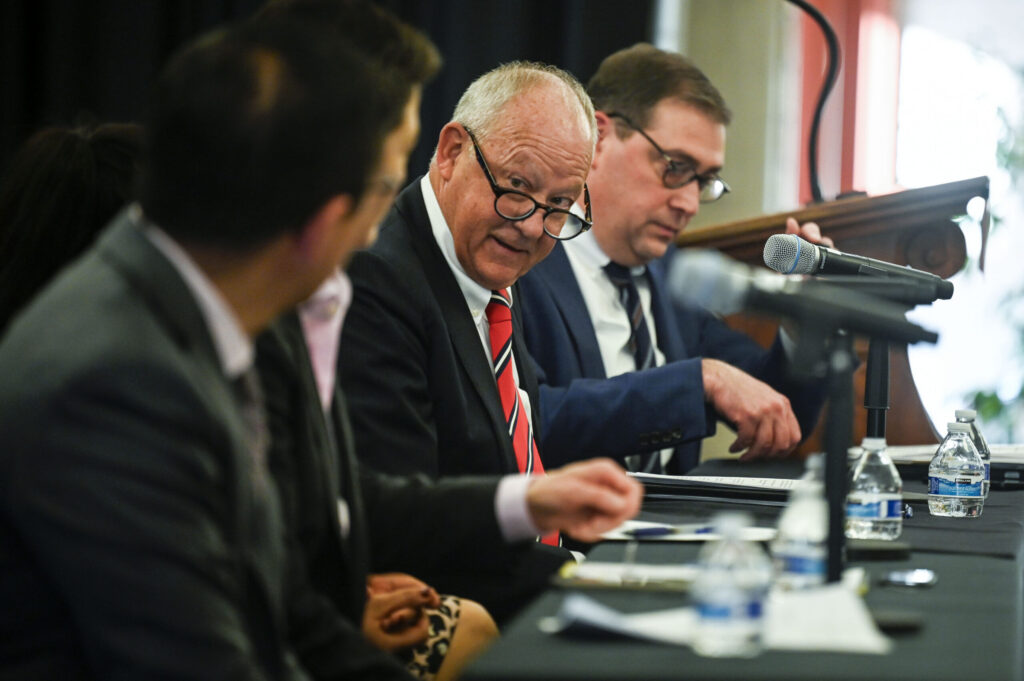YESTERYEAR: Abortion, smoking debates take center stage
… Twenty Years Ago This Week in The Colorado Statesman … “Take that President Bill Clinton!” said Colorado legislative Republican leaders. With Chuck Berry presiding as Speaker of the Colorado House, the Republican majority House State, Veterans and Military Affairs Committee amended and then proceeded to methodically pass a contentious anti-abortion bill sponsored by state Rep. Barry Arrington, R-Arvada, to ban what he – backed by Christian conservatives who praised Arrington for the measure – called “partialbirth abortions.”
HB 97-1136, passed after an extensive cross-examination by Arrington of Dr. Warren Hern, director of the Boulder Abortion Clinic. The bill made it a misdemeanor, punishable with jail time, for a physician to abort a fetus during a partial birth abortion.
Hern explained that the term “partial birth abortion” does not exist in the medical community and that such late-term abortions are used only in extremely rare cases when the mother’s life is in danger. Moreover, Hern said, at the time the procedure is done, the fetus is already dead of natural causes or has been killed previously by injection to prevent further complications in an already compromised pregnancy.
Dr. Hern and Dr. Jerry Kopelman of the Colorado College of Obstetrics testified that the bill would interfere with medical decisions best made by physicians and their patients. Dr. Kopelman said the bill could cost a woman her life, because emergency room technicians might be prevented from using a procedure necessary to save it.
Kevin Paul, a lawyer with Planned Parenthood of Colorado, added that courts had already struck down legislation similar to Arrington’s measure, which was essentially identical to a bill passed the previous session in Congress, then vetoed by Clinton in 1996.
The bill only narrowly passed the committee, after late amendments convinced Rep. Bryant Sullivan, R-Dillon, to support it. The amendments made the bill apply only to those abortions performed after the fetus had been deemed viable, and allowed them regardless of if the mother’s “major bodily functions” would be otherwise impaired.
Chairman Mike Salaz, R-Trinidad, several times had to gavel back to order the three-and-a-half hour meeting which started with allowing Kenneth Scott of the Colorado Pro-Life Nonviolent Network, to testify first. Scott was under a restraining order to stay away from Hern after threatening the physician’s life. He was escorted to and from the chamber by two Colorado State Patrol officers.
In an interview following the committee meeting, Hern decried the bill, passed during the anniversary week of the 1972 Roe v. Wade decision which legalized abortion, as an attempt by right-wing elements in the General Assembly to motivate their followers and gain power for themselves.
“The anti-abortion movement is the engine of fascism in America today,” fumed Hern. “They want a fascist theocracy, and this is their tool for doing it.”
Hern also expressed offense at the disregard by Arrington, Vice Chairman Mark Paschall, R-Arvada, and others of western scientific thought.
“We have a continuous tradition in Western society, since the Renaissance and the Enlightenment, that the experts in a given field – doctors and scientists – have the final authority to define reality in their domains,” Hern said. “Even before then, in Greece’s classical age, those philosophers said reality should be viewed rationally. These people want to turn the clock back 2,500 years.”
But conservatives argued that just as much if not more reality could be found in the morality of the issue, and pushed forward with the amended bill.
… Ten Years Ago … Multiple groups descended on the Capitol to fan the flames of a controversial 2006 indoor smoking ban which had made its way to law after its humble beginnings as HB 06-1175, causing a shower of new legislative proposals to fall under the Gold Dome.
Health advocates sought to eliminate smoking from the 44 casinos in Colorado, which had managed – with intense and skillful lobbying by some notables like Capitol heavyweight Steve Durham – to gain exemption to the indoor smoking ban in the 2006 law. But supporters of closing the loophole said the 8,000 workers in those casinos should not be placed at risk of contracting lung cancer or other illnesses because they’re forced to breathe secondhand smoke.
“I don’t think there’s any justification for the exemption and for health reasons we should extend the ban to casinos,” said Senate Majority Leader Ken Gordon (D-Denver), who had been a co-sponsor of the 2006 Clean Indoor Air Act.
The casino exemption was put in the bill in 2006 because proponents of the measure feared that the bill would fail if it included casinos, which are a major revenue sources in some parts of the state.
“What’s changed is the dynamics of the legislature,” said Stephanie Steinberg of Smoke-Free Gaming of Colorado. “And we have more awareness. There’s a sense that “Wow, we shouldn’t have allowed that exemption”.”
Part of the heightened awareness, anti-smoking advocates said, came about because of a U.S. Surgeon General’s report released in 2006 that said second-hand smoke killed 3,000 nonsmokers from lung disease and another 46,000 from coronary heart disease in 2005.
According to the American Lung Association, employees at bars inhale the equivalent of 1-2 packs of cigarettes during an average shift. Those same workers would be 50 percent more likely to get lung cancer than people who work in smoke-free places.
Critics of the smoking ban said the measure had hurt business for many of the state’s bar owners. A coalition of bars wanted the state to let small pubs have the option to choose whether to allow smoking. The Coalition for Equal Rights conducted a small sampling of restaurants and concluded that the ban had hurt business.
Sen. Lois Tochtrop, D-Thornton, sponsored a measure that would allow businesses with a liquor license to pay $500 annually to allow smoking.
“It’s going to be an uphill battle,” she said. “But we need to put the issue on the table.”
Meanwhile, House Minority Leader Mike May, R-Parker, one of the author’s of the Clean Indoor Air Act, said he was trying to stay out of the fray with the renewed debate. He did concede that, from his conversations with lobbyists, Tochtrop’s bill was expected to die early. “I don’t see it getting out of committee,” he said.
Rep. Ellen Roberts, R-Durango, filed a bill designed to better define cigar bars, which were also exempted from the ban in 2006.
… Military and Veterans Appreciation Day … The Colorado General Assembly honored members of the military as well as legislators who had served during a special ceremony. Rep. Joe Rice, D-Littleton, joined senior military officers and distinguished guests at a meeting with Gov. Bill Ritter. The guests included the family of Navy SEAL Petty Officer Danny P. Dietz, who was killed in action on June 28, 2005, in Afghanistan. Dietz was a resident of Littleton.
Senators later joined House members to consider House Joint Resolution 1010 to honor those who serve our country and express appreciation for their heroic service.
Rice, the sponsor of the joint resolution, served in the military for more than 22 years, mostly in the Army Reserve. He served two combat tours in Iraq and was awarded the Combat Action Badge for actions under enemy fire.


